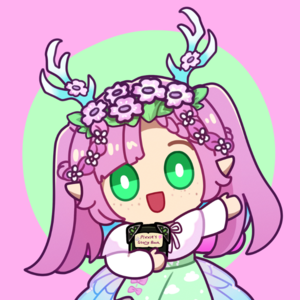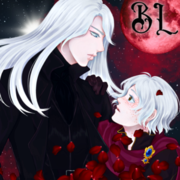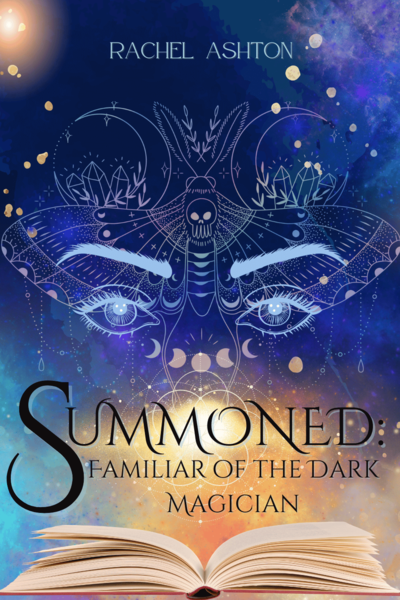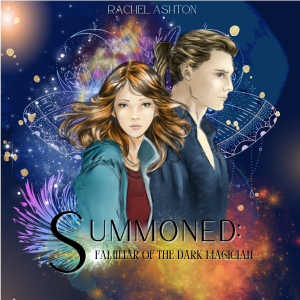Every day before she left her house for school, Ennette William’s mother would always yell out the door behind her: “Make smart choices!”
Even as a young girl, fiery little red-haired Ennette found this saying to be extremely annoying. Convinced that she knew far better than her mother ever could about the ways of the world, she ignored her mother’s wisdom. This isn’t to say that Ennette was prone to making poor choices—she was no more or less likely than any teenage girl to fall anywhere along the spectrum of ‘choice’—but it did mean that she wasn’t any more likely to make a good choice than a poor one.
Which is unfortunate. They were words to live by. Had she listened, things may have worked out very differently for her in the end.
But what is a poor choice, and how do you make one? Well, that is entirely up to any given person at any given time. For some, it’s choosing the delicious, sugar-coated, frosting-filled donut for breakfast instead of yogurt or avocado toast. For others, it’s marrying the first man who promised them the world before he ran off to Europe with his yoga instructor. Some might even consider going to college the poorest decision they’ve ever made because all they got out of it was a dead-end job, trying to make ends meet while paying off their student loans.
Ennette’s poorest choice? Reading a book.
Being a high school student, Ennette’s day was as dull as it was predictable: she went to school, hung out with her friends, and held a part-time job working at the department store ten minutes down the road for pocket change. She routinely slaved away on hours of homework, dealt with a never-ending flood of expectations thrust upon her narrow shoulders, and always made sure to have time left in her day to create and play with intricate voodoo dolls for all her classmates who ran their mouths off about how redheads don’t have souls.
(Don’t ask her where she got the materials.)
But it wasn’t all bad.
When she had a little extra time to spare, she liked computer games, playing with her dogs, and daydreaming about a guy she had a crush on named Ned. Her family was loud and boisterous, and she ate a lot of pastries, pasta, and pizza. All she wanted out of life was to travel the world and find herself (and a boyfriend) somewhere far from where she was originally from so she could escape her mundane life.
This dream made her very fond of books. Books and comics held worlds within their pages that smelled of paper and ink and seemed to contain magic within, and the soft glow of her computer or phone screen also gave her comfort, allowing her to separate herself from a more tangible reality.
Little did she know that everything was about to change.
It was a cool fall night when Ennette finished a book titled The Lady of the Golden Star.
Poor choice number one: Reading that book.
Poor choice number two: Finishing that book.
The last page had turned. The clock ticked to midnight, and Ennette was dissatisfied.
“How could it end like that?” she said with aggravation, falling back onto her bed and hugging the book to her chest.
The Lady of the Golden Star wasn’t ever really meant to be a good book—or at least, it certainly wasn’t the type of novel written for the minds of the high-brow academia to write meaningful ten-page papers about a single sentence, as if the author intended to take on the heavy responsibility of every sentence they ever wrote.
Rather, it was the kind of book written to satisfy teen girls—less mature than Ennette, of course—who dreamed of sparkly mythological creatures masquerading as handsome, brooding young men, liked ‘strong’ female protagonists, and loved Cinderella stories where the ‘just add a pretty dress and makeup to overcome the status disparity’ female gets the handsome duke or prince in the end. Harmless in nature, it could be read in a day and tossed in a pile with fifty or so other books like it, where it would lie until the desire to read it again struck its owner.
None of these things made the story any less enjoyable, and to Ennette’s credit, she quite liked the story. If it weren’t already past midnight, she’d be tempted to reread it right away.
The problem was the ending.
Of course, the book had a happy ending, as such stories normally do, but in her opinion, it was the wrong ending. Ennette pitied the unfortunate life of the doll-like Lady Laria with her harrowing experiences in becoming a powerful magus and the sparkling life she was destined to lead with her ‘beloved’ Prince Rhaltz.
“Seriously,” Ennette pouted, holding the book in her hands and staring at the pretty, anime-style artwork and flourishes that had made the story stand out to her in the first place. “You,” she said, pointing to the white-haired male lead whose face graced the cover next to Laria. “Forget about the fact that you don’t deserve her; she didn’t even like you—and I’m not convinced you liked her, either! Opportunistic jerk!”
The book told her that Laria was head over heels for the man, but the lack of chemistry between the lines suggested otherwise. It didn’t matter how grand a wedding they had nor how many words of promise were spoken—Ennette was entirely unconvinced of any true affection between the two.
“It’s only because you were a prince, and Laria was a lady of the kingdom. How was she ever going to refuse you? Even if she was the true hero of the story, she was still a woman in a stupid society! She was the one who killed the Dark Magician in the end! But noooo, everything she did was overshadowed by your title, that thing in your pants, and all that propaganda you and your stupid mother sent out proclaiming you as the ‘light’ and ‘savior’ of the kingdom!”
It was nonsense.
Laria had many, far better suitors in terms of who was the better ‘man’ in comparison. Ennette herself was a strong supporter of the red-haired mercenary Olamar as the love interest. He and Laria had such sweet moments where they were honest and supportive of one another that their relationship just felt far more meaningful.
The internet favored the dark-haired Magus, Nurlos. While Ennette was skeptical of the teacher-student relationship they had, even that would have been better in her mind. At least he was a decent person.
Her ships and the opinions of the internet didn’t matter, though. She could see the author’s intent a mile away—and the one who got the girl? The one with the highest title. ‘Prince’ Rhaltz: the playboy who would be king.
“Hmm,” Ennette hummed, picking up the book by the corner of its cover and letting the pages flip down. Suspended by her light grip, it waved back and forth like a pendulum. At least the kingdom was saved in the end, and even if she had a horrible lover, Laria was able to stand on her own two feet throughout her adventure. The Dark Magician Maziar and his lackeys were all defeated, and the kingdom was once more returned to a more peaceful existence.
But it did have a bit of a weird ending in Ennette’s mind.
No one other than Rhaltz seemed like they were happy in the end, not even Laria, who became Queen as a result.
The characters had done an awful lot of work to continue being unhappy.
Tossing the book over the edge of the bed, Ennette curled up with her blankets and pillows and shut off her lamp.
If she were the author, how would she have changed the ending? Sure, she shipped Olamar with Laria, but what if things played out and they saw each other more as siblings than lovers? And what of Nurlos, who, although put in the position of a love interest, clearly saw Laria as nothing more than a student? Did that even matter when the decision really should have been in Laria’s hands, not theirs? Laria picked Rhaltz in the end because the author could play God, but who would Laria have preferred if she were free?
Would she have picked anyone?
Thoughts in Ennette’s head swirled as she stared at the white, popcorn ceiling of her bedroom, delving into the ‘what ifs’ of the plot.
What about Laria, anyway? She’d been just an ordinary girl in her world until she was discovered to have an unprecedented amount of magical potential. It was only when she found out she was the blood of one of the noblest families in Varsal that things really started to change for her, though. Time after time, the world offered her cheats she didn’t ask for in exchange for her fate as the one who would conquer the Darklands—a fate she also didn’t ask for but was resigned to, just the same way she was resigned to marry Rhaltz.
Did she ever get to make her own choices? Did she ever want to be Queen? Laria had everything, and yet nothing—nothing, Ennette decided, because no one really ever asked her what she wanted.
Ennette would remember all of this—thinking about poor Laria and the curious dichotomy of just how much autonomy she’d had—for the rest of her life.
If I were to meet her, thought Ennett just before she drifted off to sleep, I’d ask her, and even if it takes her a lifetime to tell me, I’d wait. I wish that I, too, knew what I wanted. That would be nice, wouldn’t it?
But as fate would have it, her day wasn’t quite over. The next moment Ennette would remember would be finding herself in a strange, oval-shaped room with a glass roof.
Massive, brilliantly ultramarine walls adorned with intricate golden astrological embellishments—many of which she’d never seen before—surrounded her, and she faced a huge woman of otherworldly beauty. Sitting at a mahogany desk surrounded by books and papers with yellow hair flowing down around her feet, she directed a floating quill pen with her finger. Her glamorous image matched the decor of the room as she sat wearing a cobalt gown embroidered with golden stars and constellations. Her skin was a deep, shimmering gold, and her deep-set blue eyes seemed to glow.
Ennette’s eyes darted around, hoping to find some semblance of place or time, but finding nothing, she tilted her head.
What was she doing there?
“Ennette Williams, is it?” the woman behind the desk suddenly asked.
Ennette looked around, hoping she was talking to someone who might have shared her name. There was no one else for her to be talking to, of course, so she pointed to herself and asked:
“Me?”
“You.”
“What about me?”
“You have a wish, don’t you? So let’s get on with it, then.”













Comments (21)
See all